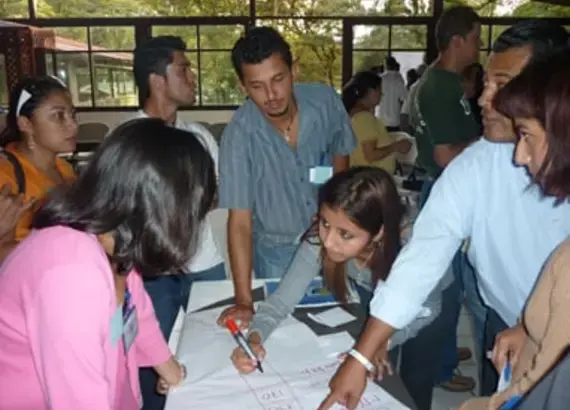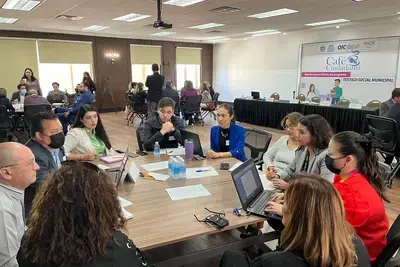
Success Story
Nicaragua Leadership Program Supports Emerging Leaders
Nearly 70 percent of Nicaraguans are under the age of 30, but young people in the country remain disengaged from politics and government. They also are increasingly dissatisfied with political parties and government institutions, according to the findings of a recent NDI Democracy Survey.
To bring young people into the political arena and help build the next generation’s confidence in government, a consortium of Nicaraguan and international educational institutions has created a new program – the Certificate on Leadership and Political Management (CLPM) – that started in October with 387 participants from Nicaragua’s Pacific/Central regions.
Some 180 women and 207 men representing 49 civic organizations and 10 of the country’s major political parties and movements attended the first course on democratic values and leadership. They covered such topics as political tolerance, gender equity, human rights and separation of powers, as well as skills such as strategic planning, communication, negotiation and coalition building.
By providing political training opportunities to young women and men, the CLPM is aiming to reach the sector that embodies the greatest potential force for political reform. NDI’s 2009 Nicaragua Democracy Survey showed that this group of young citizens was more likely to be politically interested than older generations, and with the proper training and support has the potential to become drivers for change in their parties, organizations and communities.
NDI helped organize the consortium, which includes the American University (Universidad Americana, UAM), the University of the Nicaraguan Caribbean Coast Autonomous Region (Universidad de las Regiones Autónomas de la Costa Caribe Nicaragüense, URACCAN), the Institute for Development and Democracy (Instituto para el Desarrollo y la Democracia, IPADE) and the George Washington University Graduate School of Political Management (GSPM).
 Marisol Amador of IPADE addresses participants during the second component on strategic planning.
Marisol Amador of IPADE addresses participants during the second component on strategic planning.The CLPM program seeks to build a foundation at local Nicaraguan universities and organizations to sustain a program that combines both academic approaches and development of political skills.
A second course on strategic planning completed in November, built on participants’ understanding of the first course’s concepts and prepared them to use planning techniques to respond to changing political environments, design cohesive party strengthening plans and allocate the necessary budgetary resources to activities.
The CLPM is an annual program to be carried out over five years with approximately 500 participants per year from civic organizations and all major political forces. The curriculum will be taught in five components throughout the Pacific/Central and Atlantic regions of Nicaragua. CLPM participants will receive ongoing feedback and assistance in carrying out reform and advocacy projects after they complete the program.
In the Atlantic coast region of Nicaragua, the program kicked off with the first two components earlier this month.
Pictured above: Program participants work in a group exercise during the first course on democratic values and leadership.
Published December 10, 2010



